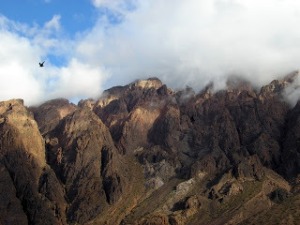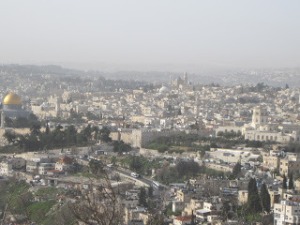Scripture Text: Luke 19: 41-45
41As he came near and saw the city, he wept over it, 42saying, “If you, even you, had only recognized on this day the things that make for peace! But now they are hidden from your eyes. 43Indeed, the days will come upon you, when your enemies will set up ramparts around you and surround you, and hem you in on every side. 44They will crush you to the ground, you and your children within you, and they will not leave within you one stone upon another; because you did not recognize the time of your visitation from God.”
If only…How many times does our grief and our feeling of loss begin with those words? Jesus knows his time on earth is coming to an end. He had to feel regrets over things he saw as incomplete, even undone. He looked out over Jerusalem, his beloved city, the Holy City, and he knew. His mission was to bring peace, not just an absence of war, but a peace that resides in the deepest part of every soul. Because the One whose name was never uttered, the Great I-AM, the Creator and Sustainer of the World had come to call and the world did not always seem to notice. The world glanced at God-With-Us and then went back to its way of doing things. Wars continued to rage; poverty and hunger were still there; there were still divisions; and not everyone really paid attention. Jesus knew. Jesus knew that the world was not completely ready. So, he wept over the city. He wept over the people. He wept over the world.
The truth is, we are seldom the “finishers” of the things we start. If Jesus’ work had been finished during his time on earth, there would be no need for faith. There would be nothing left for God to call us to do. But it had to hurt. We all want to see what we start to come to fruition. But sometimes God calls us to begin the story that we will not finish. This is what Jesus knew in that moment.
There is an old wisdom story that tells of those that were building one of the amazing old cathedrals. Now, keep in mind, these cathedrals did not take a year, or ten years. They took centuries. Those that started the work knew that they would never see the fruits of their labors. But they poured their heart out, nevertheless. So, someone asked a builder of these great cathedrals what he was doing. His response was that he was laying bricks. He was right. So, the person asked another person that was working on the project. He responded that he was making a living for his children and his family. He was right. Then the person asked a third builder. His response? “I am building a cathedral.”
See, we’re all building a cathedral. That will be the end of the story. That’s what we envision. And yet, we want so badly to see the fruits of our gifts. We want to reap the benefits of what we give. But the story is not about what happens now; it is about the ending that will come. So, what we could imagine that could be is huge.
Sometimes we grieve for the moment—for what happened or did not happen, for what we did or didn’t say, for those moments that we cannot get back again, for what was. And we weep. But God is taking all that we’ve done and calling others to complete it—to build a cathedral. So as we wander in this wilderness of loss and grief and things left incomplete or undone, we weep. And then we remember that God is REALLY good at showing us the way out of the wilderness. There is an Arab proverb that says if you expect to see the results of your work, then you have simply not asked a big enough question.
One of my favorite poems is by Ann Weems. Here are the words:
God did not wait till the world was ready, till nations were at peace. God came when the Heavens were unsteady and prisoners cried out for release. God did not wait for the perfect time. God came when the need was deep and great.
In the mystery of the Word made flesh the maker of the Stars was born. We cannot wait till the world is sane to raise our songs with joyful voice, or to share our grief, to touch our pain.
God came with Love. Rejoice! Rejoice! And go into the Light of God. Amen.
You and I are incomplete. I’m unfinished. I’m unfixed. And the reality is that’s where God meets me is in the mess of my life, in the unfixedness, in the brokenness. I thought he did the opposite, he got rid of all that stuff. But if you read the Bible, if you look at it at all, constantly he was showing up in people’s lives at the worst possible time of their life. (Mike Yaconelli)
Grace and Peace,
Shelli



